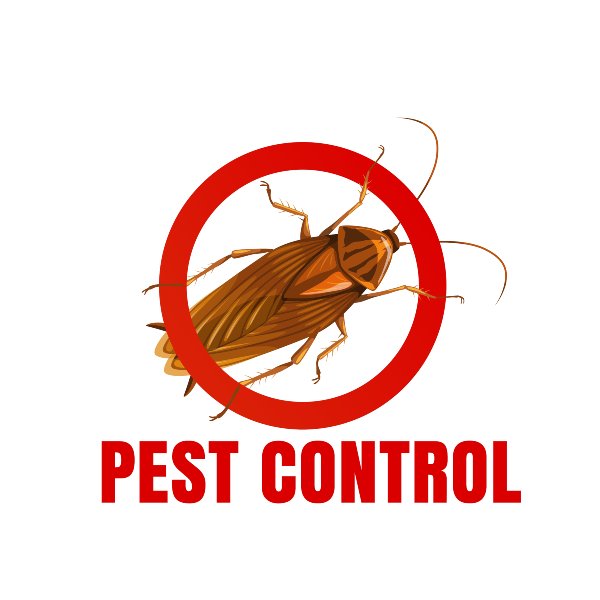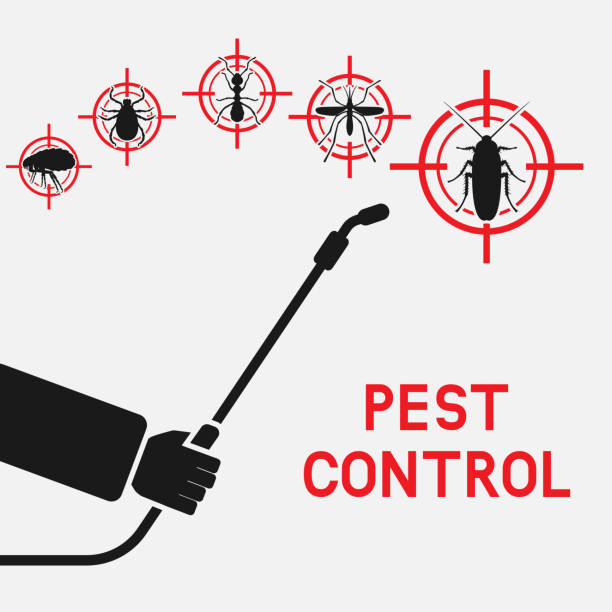Safe and Trustworthy Bug Control for Lasting Security
Efficient insect administration requires a multifaceted strategy that stabilizes environmental honesty with the demand for effective bug reductions. The nuances of these approaches may not be promptly clear, prompting a more detailed assessment of the practices that can lead to lasting bug control outcomes.
Comprehending Parasite Control Techniques
Pest control encompasses a selection of techniques focused on handling and eradicating unwanted bugs and rats that can endanger both health and wellness and residential or commercial property. Understanding these methods is crucial for efficient bug monitoring.
The primary classifications of parasite control techniques consist of mechanical, biological, and chemical techniques. Mechanical approaches involve physical obstacles and traps to stop bug access and capture unwanted types. Making use of displays on windows or using sticky catches can dramatically minimize bug populaces without introducing harmful compounds - exterminator coquitlam.

Chemical pest control is usually one of the most identified method, utilizing pesticides to remove insects. These chemicals can be reliable however have to be used with care to avoid damaging effects on non-target species and the setting.
Benefits of Eco-Friendly Solutions
How can eco-friendly remedies change parasite control practices? The fostering of environment-friendly insect control techniques supplies many benefits, significantly improving the effectiveness and safety and security of bug monitoring.

One more advantage is the favorable influence on local biodiversity. Eco-friendly solutions are designed to target particular insects while maintaining beneficial pests and wild animals, advertising a balanced ecological community. This approach lines up with the growing consumer need for lasting practices, boosting the reputation of insect control carriers.
Integrated Insect Administration Strategies
The implementation of eco-friendly remedies naturally leads to the fostering of Integrated Parasite Management (IPM) methods, which further enhance insect control efficacy. IPM is an all natural approach that combines several methods to manage parasite populaces while minimizing environmental effect. This approach emphasizes using organic, social, mechanical, and chemical controls, making sure a well balanced and lasting technique of bug administration.
One basic aspect of IPM is the comprehensive evaluation of parasite activity and ecological problems. By monitoring bug populaces and identifying their life cycles, professionals can implement targeted interventions that interfere with the insect's habitat or lifecycle, lowering dependence on chemical pesticides. Additionally, social practices such as plant turning and habitat adjustment can considerably reduce bug establishment and reproduction.
One more critical component is making use of organic control representatives, such as useful insects or microorganisms, which can naturally reduce parasite populaces. When chemical applications are essential, IPM prioritizes using low-risk chemicals and uses them uniquely, reducing direct exposure to non-target microorganisms and human beings.
Including IPM approaches not just improves bug control performance however also promotes a safer ecological community, lining up with the expanding need for sustainable techniques in pest monitoring.
Safe Practices for Property Owners
Understanding the relevance of secure methods in bug control can encourage house owners to properly take care of parasite concerns while protecting their health and the setting. Applying safe techniques and safety nets is essential in minimizing exposure to unsafe chemicals.
Home owners must first evaluate their setting for conditions that bring in pests, such as standing food, mess, and water waste. Regularly cleansing and sealing entry points can deter bugs from getting into the home. Making use of all-natural deterrents, such as essential oils or diatomaceous earth, can offer efficient choices to chemical pesticides.
When chemical treatments are required, homeowners must select products that are specifically labeled as safe for domestic use. It is important to comply with application standards carefully to stay clear of overexposure. Making use of targeted therapies in locations where parasites are recognized, instead than covering splashing, can considerably lower chemical use.
Finally, maintaining open interaction with insect control specialists is essential. House owners must make inquiries regarding the safety of items utilized and request environment-friendly alternatives whenever feasible. By taking on these risk-free techniques, homeowners can create a much healthier living setting while efficiently taking care of bug concerns.

Tips for Long-Term Protection
Establishing a bug management strategy that emphasizes long-term defense can significantly boost the performance of the safe methods previously discussed. To achieve this, home owners need to implement regular assessments of their building, concentrating on hidden areas such as attics, basements, and crawl spaces. Early discovery of pest activity is important in preventing problems from taking hold.
In addition, keeping a tidy atmosphere is essential. This includes proper food storage, quickly cleansing spills, and regularly taking care of garbage. These methods minimize attractants that draw insects into the home. Sealing entrance factors, such as cracks around doors and home windows, can effectively block prospective pest Home Page accessibility.
Landscape design ought to additionally be considered; keeping plants trimmed and keeping a distance in between greenery and the home minimizes concealing spots for insects. Making use of natural deterrents, such as essential oils or diatomaceous earth, can additionally dissuade infestations without considering this post extreme chemicals.
Lastly, working together with a professional insect control solution for periodic examinations can provide an extra layer of protection. These specialists can use customized referrals and advanced therapies, ensuring that your home stays protected against pests in the lengthy term.
Conclusion
To conclude, dependable and safe insect control needs a diverse strategy that stresses eco-friendly methods and integrated insect management. By executing all-natural deterrents, conducting regular assessments, and maintaining appropriate sanitation, homeowner can substantially lower bug populaces while safeguarding valuable bugs and the atmosphere. Cooperation with specialist parasite control solutions enhances the effectiveness of these methods, making certain customized solutions that supply enduring defense and satisfaction versus future invasions.
Efficient insect monitoring needs a diverse technique that balances environmental integrity with the need for reliable pest reductions. The fostering of environment-friendly parasite control approaches offers various advantages, significantly improving the performance and security of insect management.The application of eco-friendly remedies naturally leads to the adoption of Integrated Bug Monitoring (IPM) methods, which Get More Information further boost pest control efficacy. exterminator coquitlam. By keeping an eye on pest populations and determining their life cycles, professionals can apply targeted treatments that disrupt the parasite's habitat or lifecycle, decreasing reliance on chemical pesticides.In verdict, secure and reputable pest control requires a diverse method that highlights green techniques and integrated insect monitoring
Comments on “Affordable Rat Control Coquitlam Services to Keep Your Home Safe”